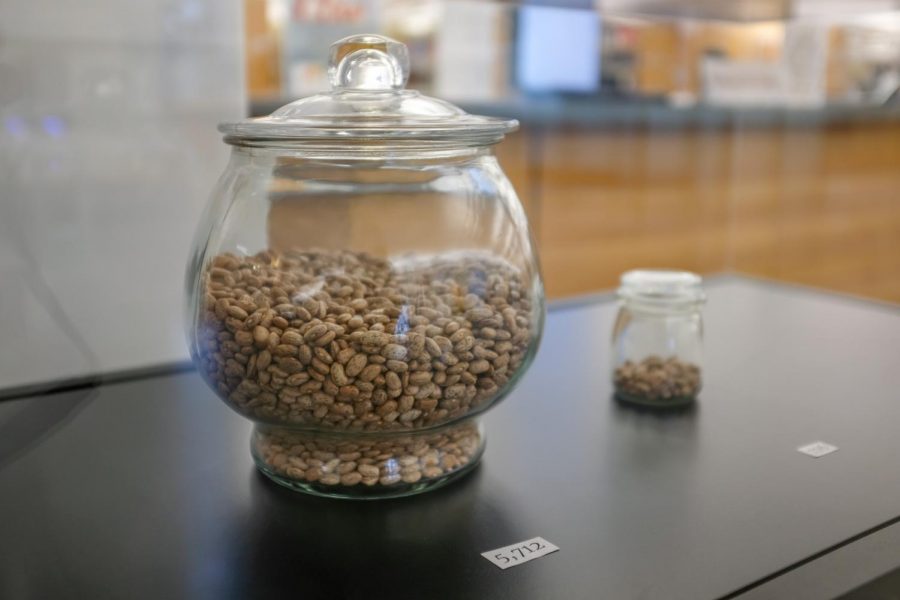Skillman display highlights the crisis of missing Indigenous women
Photo by Caroline Burns for The Lafayette
The display will be kept up until the end of November. (Photo by Caroline Burns ’22)
October 29, 2021
What seems like merely two jars of pinto beans in Skillman Library actually represents the individual lives of Indigenous women who have gone missing.
According to a report by the Urban Indian Health Institute, there were 5,712 cases of missing and murdered Native American and Alaskan Native women in 2016. Only 116 of the cases were logged into the Department of Justice database.
This discrepancy is showcased as a part of the Missing and Murdered Indigenous Women Crisis display, which is run by Skillman Circulation & Reserves Technician Alana Danois. With Indigenous People’s History Month coming up in November, the display highlights the systemic racism and gender discrimination experienced by Indigenous women every day, including abduction, trafficking and murder.
The project is split up into two stages. The first is a display at the entrance of Skillman supported by a poster with data on the crisis and links to resources. The display contains one large jar containing 5,712 pinto beans to represent the number of missing women and a much smaller jar containing 116 pinto beans to represent the cases counted in the database. The second part of the display leads viewers to the browsing section, where they can read more about Native American culture and heritage and learn what they can do to alleviate the crisis.
Danois said that one main cause of the crisis is that Indigenous women are often othered and considered disposable.
“We don’t wake up every day thinking people who are brown are disposable, but it’s in the backs of our minds… So, I just wanted people to have the opportunity to find information about the culture because once you’ve learned about someone else’s culture, you can no longer other them,” Danois said.
Though the crisis has been at the back of her mind for some time, Danois said that listening to the third season of the podcast “Up and Vanished,” which delves into a case of a missing Indigenous individual, inspired her to take further action. Danois also commented on the constant environment of danger and fear that Indigenous women have to experience every day.
“There are countless Indigenous women who go missing in North America, including Canada, every single day, and you don’t hear anything about it, especially if you’re 0n this side of the country…It’s easy to put out of mind because it’s so far away, and it’s not something we’re confronted with on a daily basis,” Danois said. “I wanted to confront people with that.”



























































































































